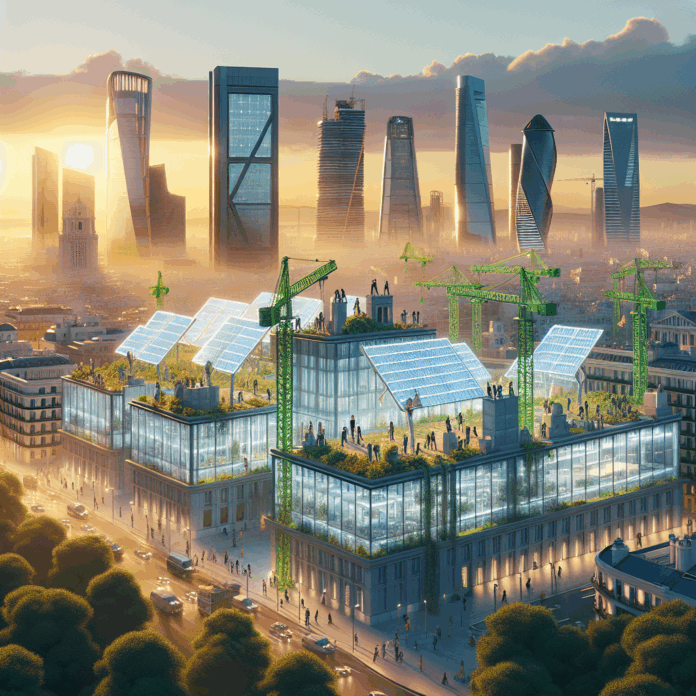Madrid has positioned itself at the forefront of technological and sustainable transformation in the construction sector, one of the pillars of the Spanish economy. Facing the challenges imposed by climate change, the need for energy efficiency, and the growing demand for sustainable infrastructure, technological innovation emerges as the engine of change in this industry.
In the capital, the collaboration between established companies, technology startups, and research centers is generating innovative solutions that range from the use of advanced materials to the integration of digital tools for project management. This joint effort is giving rise to a more efficient, safer construction model with a lower environmental impact.
Among the technologies redefining construction, digital twins stand out, tools that allow creating virtual replicas of buildings to simulate their behavior at different stages of the construction process. These tools not only improve planning, but also reduce costs and delays.
Artificial intelligence, for its part, is optimizing site logistics, anticipating safety risks, and improving efficiency in the use of materials. Alongside it, 3D printing is beginning to take off in the manufacture of parts and structural components, promoting customization and speeding up processes.
New smart materials that self-regulate temperature, absorb pollution, or generate energy are turning buildings into active infrastructures within the energy transition. Modular construction is also becoming a faster, more economical, and more sustainable alternative.
This environment of digitization and innovation opens up a wide range of opportunities for startups and emerging companies. Among them, the development of specialized software for construction management, risk analysis and project simulation; IoT and sensorization solutions to monitor infrastructure in real time; circular economy applications such as construction waste recycling; and services for energy efficiency and sustainable construction that meet the demand for greener cities.
In Madrid, pioneering projects in sustainable and digitized construction are already being tested, thanks to public sector initiatives and collaborations with private companies. The development of new neighborhoods, the energy retrofit of buildings, and the creation of resilient infrastructures position the city as an ideal urban laboratory to scale up innovative solutions.
With innovation as the driving force, the construction sector not only adapts to current needs, but is projected as a strategic sector for the future of cities. For startups and scaleups, it represents a fertile field to generate economic and social impact through technology.



